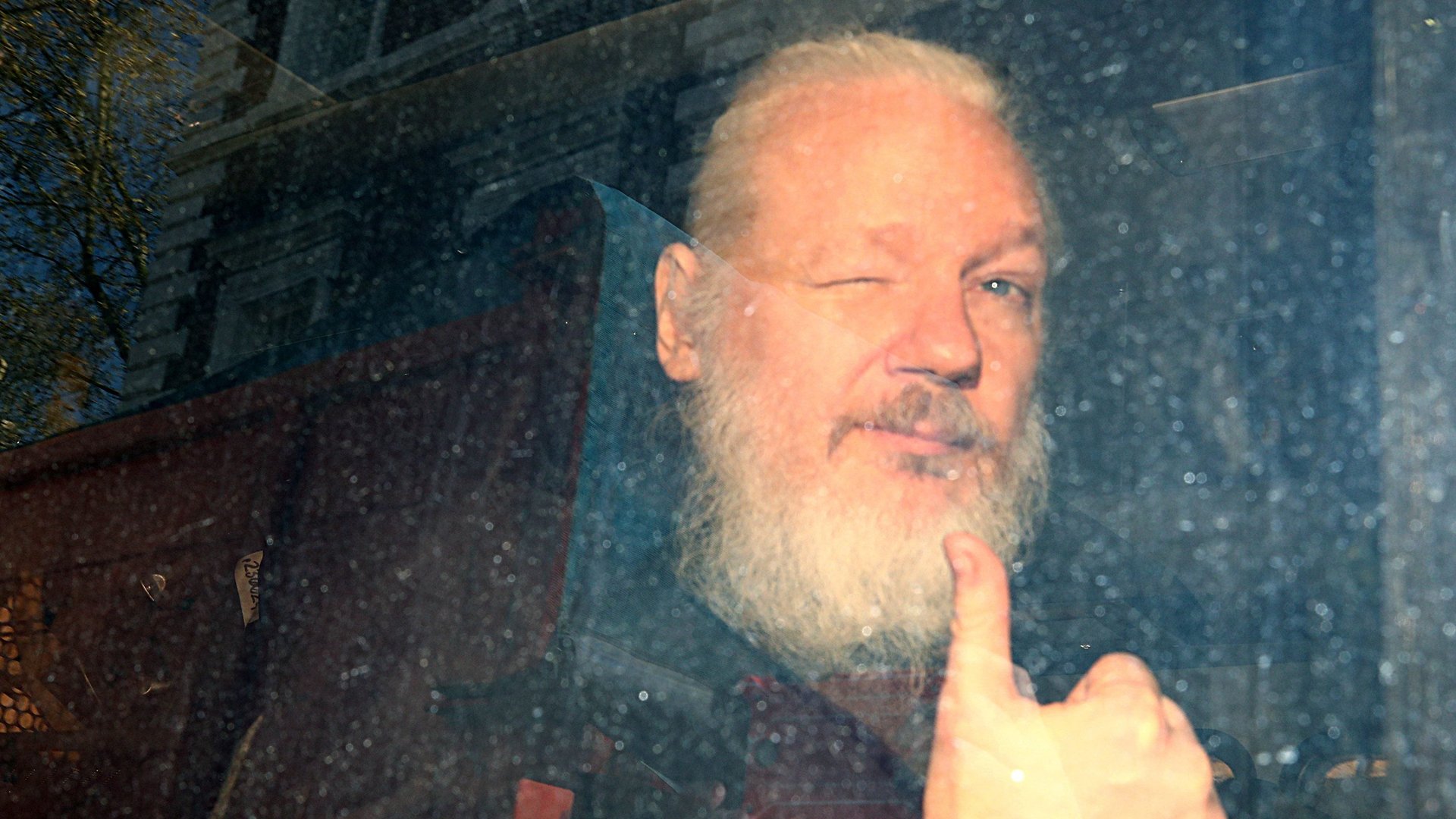A former NSA attorney explains the US case against Julian Assange
Julian Assange’s arrest in the UK came after years of debate over whether the WikiLeaks founder should be afforded the same legal protections in the US as journalists.


Julian Assange’s arrest in the UK came after years of debate over whether the WikiLeaks founder should be afforded the same legal protections in the US as journalists.
Federal prosecutors say Assange should be extradited to the US to be tried for working with former Army intelligence analyst Chelsea Manning in 2010 to steal and publish military and diplomatic secrets online. The allegations are not related to those that Assange worked with Russian agents to disseminate hacked emails from the Democratic National Committee during the 2016 presidential campaign which were damaging to Hillary Clinton and helpful to then-candidate Donald Trump.
As noted by CNN’s Evan Perez, “News organizations similarly published stolen classified documents; some even worked with WikiLeaks to get access to documents and publish stories. The view among prosecutors began changing late in the Obama administration, in part due to new evidence the FBI believed showed Assange was not entitled to journalistic protections.”
Quartz spoke with attorney April Doss, former senior minority counsel for the US Senate Committee on Intelligence and associate general counsel at the National Security Agency, about Assange’s indictment by federal prosecutors on one count of conspiracy to break into computers to obtain classified information that “could be used to the injury of the United States and the advantage of any foreign nation.” (The conversation has been edited for clarity and length.)
Quartz: What do you make of the charge leveled against Assange?

April Doss: He is not charged with having been in possession of classified information or having published information that is detrimental to US national security interests. But he’s charged with conspiracy to commit the crime of hacking into a computer system. The Department of Justice has, appropriately, been very concerned for a number of years about taking any prosecutorial action that could have a chilling effect on journalistic activities…there is a longstanding sense that freedom of the press is so integral to American values and American society that it would be dangerous and imprudent for the government to undertake any prosecutions related specifically to journalistic activities, [although] certainly I think most journalistic organizations would say that for a journalist to actively participate with a source in trying to steal information goes outside the bounds of journalistic ethics.
You mentioned a distinction between accusations of conspiracy to hack a computer and accusations of espionage. Why hasn’t Assange been charged with espionage?
Because the Espionage Act does talk about exchange of information and using information in ways detrimental to US national interests, it’s certainly possible that if a journalist were prosecuted under the Espionage Act that there could be a chilling effect on free speech. Just sort of thinking through a hypothetical scenario: Assange has been, for many years now, publishing information that has come from various kinds of confidential sources, whether it’s classified government information or other kinds of confidential sources. And so I think it was very important to prosecutors in this instance to say, “We are not prosecuting him for publishing information that a source came to him with voluntarily. What we’re prosecuting him for is: He, as alleged in the indictment, conspired with a source to figure out how to hack into files that they didn’t otherwise have access to. And hacking is a crime.”
What are the national security implications of the US secrets Assange has already released via WikiLeaks?
The indictment that was announced today relates entirely to actions that are alleged to have happened in 2010. This was information that Chelsea Manning released relating to State Department cables, DoD operations, and the national security commentators at the time said this had a significant impact on national security because releasing the cables complicated and undermined US relations with key allies. Also, within those cables were the names of people who were human-rights activists in oppressive countries or individuals who had some role in collaborating or cooperating with US objectives overseas. There was lots of concerns that much of what was dumped put lives at stake or put US foreign policy objectives at stake.
One of the things that I think sometimes gets lost in the context of very big releases of information, like the Manning or Snowden leaks, is that often the people who release this information will point to a relatively small handful of pieces of information that they assert points to some US government wrongdoing or some US operation or policy that the American people should know about. But when it comes to these very large troves, like the ones at issue and are part of the context for this indictment, there is a great deal of information in there that really can’t be characterized as related to whistleblowing.
What’s next for Assange?
There’s certainly enough in the indictment to support the basis for extradition. I think that we can expect Assange to fight extradition, and I think it’s entirely likely that he will be extradited. Assuming he is, I think we can also assume that he’s going to fight these charges. He continues to assert that he’s not guilty of any criminal activity.
If he is indicted and faced with the prospect of potential jail time, will he be interested in offering some kind of cooperation to prosecutors in order to get a favorable consideration for a reduced sentence? I think that’s many steps down the road. But Assange and WikiLeaks have certainly been mentioned in many of the Mueller filings; the Saint Petersburg troll farm indictment refers to an unnamed organization that appears to be WikiLeaks. And so it is entirely possible that Assange might have information on other matters that could be of interest to US law enforcement and he might at some point decide that he wants to cooperate.
Where does Chelsea Manning stand in all this?
In terms of the particular charges filed in this indictment, it is too late to indict Chelsea Manning for any of this. And Chelsea Manning, of course, already served a sentence for these activities, she was convicted of mishandling classified information and served seven years for it. So charges would not be brought against her now because she’s in essence already been convicted one time for her piece of this.
Now, we do know that she went to jail just last month for refusing to provide testimony to a grand jury. We don’t know a great deal about what those proceedings involved because of grand jury secrecy. But we do know that Manning said publicly that what she was refusing to testify about was WikiLeaks. So it is possible that there are some new charges the government is considering against Assange or WikiLeaks that are separate from this indictment. That may be what they were questioning Manning about that she refused to answer. We just don’t know, because of the confidential nature of grand jury proceedings.